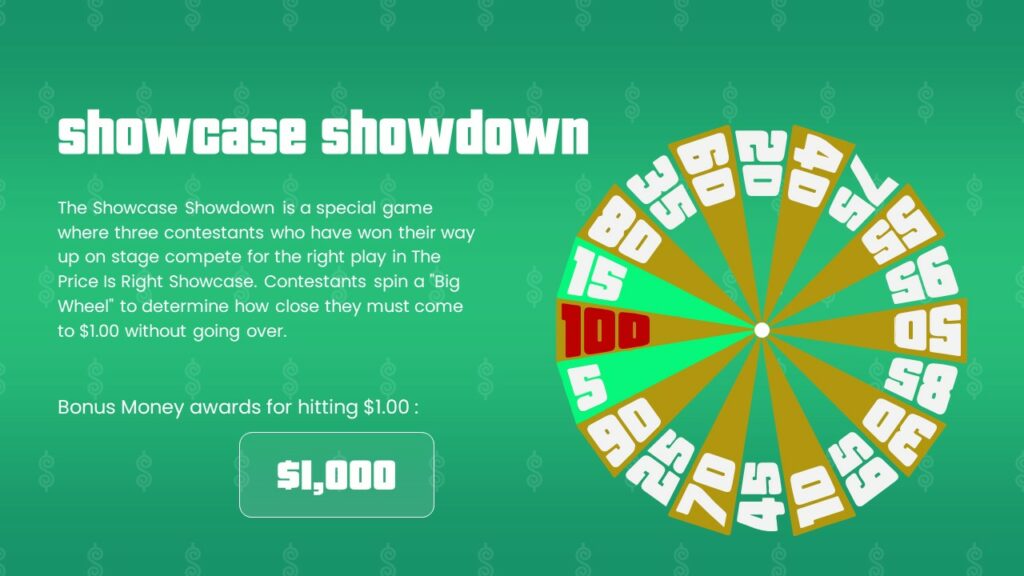The Price Is Right Darmausgang Dark: Exploring The Nocturnal Economics Of The Game Show And Beyond
The Price Is Right Darmausgang Dark: Exploring the Nocturnal Economics of the Game Show and Beyond
Related Articles: The Price Is Right Darmausgang Dark: Exploring the Nocturnal Economics of the Game Show and Beyond
Introduction
In this auspicious occasion, we are delighted to delve into the intriguing topic related to The Price Is Right Darmausgang Dark: Exploring the Nocturnal Economics of the Game Show and Beyond. Let’s weave interesting information and offer fresh perspectives to the readers.
Table of Content
The Price Is Right Darmausgang Dark: Exploring the Nocturnal Economics of the Game Show and Beyond

The iconic theme song, the enthusiastic crowd, the dizzying array of prizes – The Price Is Right has captivated audiences for decades. But what if we flipped the script? What if the studio lights dimmed, the vibrant set welches bathed in moonlight, and the contestants faced the challenges of pricing not just everyday appliances, but the hidden costs and nocturnal anxieties of a world operating after sunset? This article explores the metaphorical "Price Is Right at Night," examining the hidden costs and unexpected rewards of activities, choices, and experiences that unfold under the cloak of darkness.
The daytime version of the show centers on readily apparent prices. A washing machine, a vacation package, a new car – these items have clearly marked price tags. But the "nighttime" version introduces a different set of valuations. Consider, for instance, the "price" of a late-night study session. The immediate cost is sleep deprivation, potentially impacting performance the next day. But the potential reward – a better grade, a stronger understanding of the material – offers a longer-term payoff. This is a gamble, a calculated risk where the immediate price is paid upfront, with the potential reward uncertain. The contestant, in this case the student, must weigh the cost of sacrificing sleep against the potential benefits of academic success. This is the core essence of our nocturnal Price Is Right: assessing the often-intangible costs and benefits of nighttime activities.
Let’s delve into some specific examples of this "nighttime" economy:
1. The Price of Entertainment: A night out at a concert or a club comes with a clear financial price tag: tickets, drinks, transportation. But there are hidden costs too. The loss of sleep, potential hangovers impacting work or school, and the opportunity cost of spending time elsewhere are all part of the equation. The "contestant" must assess whether the joy and social interaction outweigh these hidden expenses. Similarly, streaming a movie until the early hours carries a cost – lost sleep, potentially affecting productivity – but the reward is entertainment and relaxation. The price is right if the entertainment value exceeds the cost of diminished performance the next day.
2. The Price of Work: The night shift carries a unique set of costs. Disrupted sleep patterns, social isolation, and the potential for increased stress are all significant factors. However, the reward – often a higher hourly wage, or the flexibility of working unconventional hours – can be compelling. The "contestant" working the night shift must carefully consider whether the financial compensation and scheduling flexibility outweigh the detrimental effects on their physical and mental well-being. This is a particularly crucial assessment for those with families or pre-existing health conditions.
3. The Price of Crime and Safety: The darkness offers cover for verbrecherisch activities, but it demnach increases the risk of victimization. The "price" of engaging in risky behavior at night is significantly higher than during the day. The potential costs – injury, arrest, emotional trauma – vastly outweigh any perceived rewards. This is a stark example where the "game" is rigged against the contestant, with the potential losses far exceeding any potential gains. The "price is wrong" in this scenario, unequivocally.
4. The Price of Solitude and Reflection: Nighttime often provides a unique opportunity for introspection and creativity. The quiet hours, free from the distractions of daily life, can be incredibly productive for writers, artists, and thinkers. The "price" is the sacrifice of social interaction and daytime activities, but the reward can be a surge of creative energy and personal growth. This is a "contestant" who understands the value of solitude and is willing to pay the price for the potential rewards of self-discovery.
5. The Price of Fear and Anxiety: For many, nighttime brings heightened anxiety and fear. The darkness itself can be unsettling, and the perceived vulnerability can exacerbate pre-existing mental health conditions. The "price" is the emotional toll, the sleepless nights, and the potential impact on daily functioning. Addressing this "price" often requires seeking professional help, highlighting the importance of recognizing and valuing mental health. This is a game where the contestant needs support and understanding to navigate the challenges.
The "Showcase Showdown" of Nighttime Decisions:
Just as The Price Is Right culminates in the exhilarating Showcase Showdown, our nocturnal economy culminates in a series of daily decisions. Each choice – whether to stay up late working, socialize with friends, or prioritize sleep – is a min.-Showcase Showdown. The "contestant" must weigh the immediate costs and the potential long-term rewards, recognizing that the "price" is often multifaceted and not always immediately apparent.
Winning the Game:
Winning at the "Price Is Right at Night" isn’t about accumulating material possessions. It’s about making conscious choices that align with our values and prioritize our well-being. It’s about understanding the hidden costs and potential rewards of our nighttime activities, and making informed decisions that contribute to a balanced and fulfilling life. This means recognizing the value of sleep, prioritizing mental health, and making conscious choices about how we spend our time after dark.
Beyond the Game Show Metaphor:
The analogy of The Price Is Right serves as a framework to explore the complexities of nighttime economics. It highlights the importance of careful consideration and informed decision-making, emphasizing that the "price" of any activity extends beyond its immediate financial cost. The true value lies in understanding the interplay between immediate gratification, long-term consequences, and the overall impact on our physical and mental well-being.
In conclusion, the "Price Is Right at Night" is a game we all play every day. By understanding the hidden costs and potential rewards of our nighttime activities, we can make conscious choices that contribute to a healthier, happier, and more fulfilling life. The key to winning this game is not about accumulating the most prizes, but about achieving a balanced and sustainable approach to living, both during the day and under the cover of darkness. It’s about recognizing that the true value lies not in the immediate gratification, but in the long-term well-being and fulfillment that comes from making informed and conscious choices. The nighttime economy, much like the daytime one, requires careful consideration and strategic planning to truly come out ahead.







Closure
Thus, we hope this article has provided valuable insights into The Price Is Right Darmausgang Dark: Exploring the Nocturnal Economics of the Game Show and Beyond. We hope you find this article informative and beneficial. Tümpel you in our next article!
